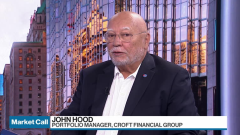Nov 29, 2023
Senators Warn of Hidden Dangers Lurking in Private Credit Boom
, Bloomberg News

(Bloomberg) -- The rapid rise of private credit may pose unforeseen threats to the US banking system, according to two senior Democratic senators.
Sherrod Brown, who chairs the Banking Committee, and Jack Reed, who also sits on the panel, on Wednesday asked US regulators to do more to assess the potential dangers. The lawmakers also requested details on what the Federal Reserve, Federal Deposit Insurance Corp. and the Office of Comptroller of the Currency were doing to address the issue.
“Unlike the traditional banking industry, the private credit market is subject to minimal, indirect regulatory oversight,” the senators wrote in a letter to the Fed’s Michael Barr, FDIC Chairman Martin Gruenberg and Acting Comptroller Michael Hsu. “The lack of transparency in this market obscures its true size and risk.”
The senators emphasized risks posed by the growing ties between the traditional banking market and private funds. They warned that it could “pose hidden dangers to the banking system, especially as most of the private credit market has not endured a full economic cycle with elevated default rates.”
Nomura Holdings Inc. has started looking to put down $1 billion of its balance sheet to participate in private deals, Citigroup Inc. began discussions to start a new direct-lending strategy by early next year and JPMorgan Chase & Co. sought a potential partner to grow its private credit business.
The senators’ letter requests that the Fed, FDIC and OCC describe by Dec. 20 the steps they’re taking to analyze the potential risks private credit poses to the banking system, their supervisory roles, and how they work with other agencies.
In a statement, Drew Maloney, who leads the American Investment Council trade group which has members that provide private credit services, said that they weren’t systemically risk. “In this economy, private credit is helping small businesses get capital to grow and succeed,” he said.
©2023 Bloomberg L.P.






